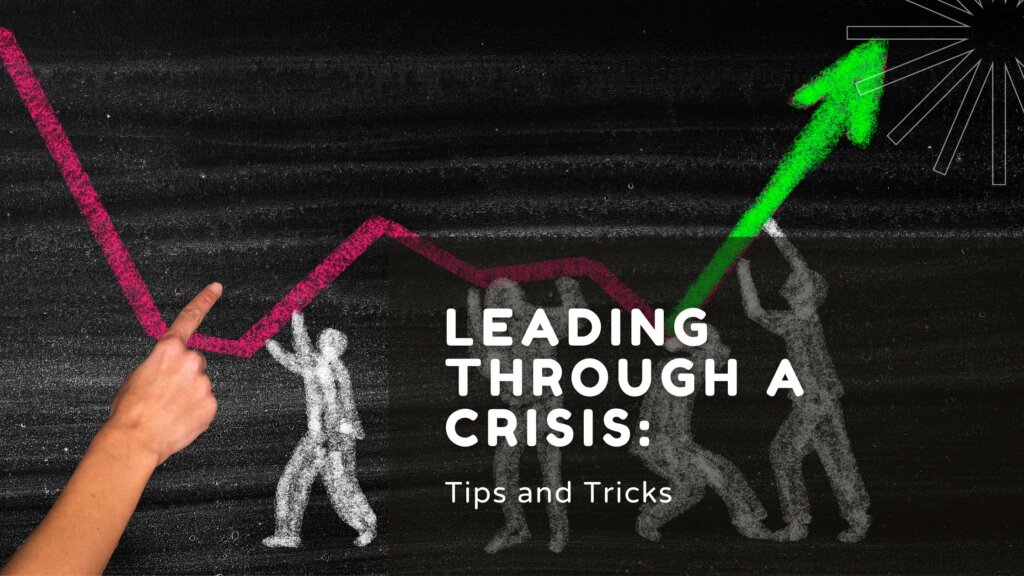
Leading through a crisis is one of a leader’s most challenging tasks. Whether it’s a natural disaster, a financial downturn, a global pandemic, or any other unforeseen event, crises test individuals’ and organizations’ resilience, adaptability, and leadership capabilities. Effective leadership becomes paramount in guiding teams, stakeholders, and communities through uncertainty and toward eventual recovery.
Here are some tips and tricks for leading through a crisis:
Stay Calm and Confident:
In times of crisis, people look to their leaders for guidance and assurance. It’s crucial to remain composed and project confidence, even when uncertain.
Communicate Openly and Transparently:
Clear and honest communication is key during a crisis. Inform your team about the circumstances, any possible obstacles, and the actions being taken to overcome them. Transparency builds trust and helps alleviate fear and uncertainty among team members.
Provide Clear Direction and Priorities:
Amidst the chaos, clarity is paramount. Clearly define the objectives, priorities, and action plans to navigate the crisis. Ensure everyone is aware of their responsibilities and roles and how they contribute to the overall goals.
Be Flexible and Adaptive:
Crises often require quick decision-making and adaptability to changing circumstances. Encourage creativity and innovation in finding solutions to emerging challenges.
Empower and Support Your Team:
Empower your team members to take ownership of their tasks and make decisions within their areas of expertise. Provide them with the resources, support, and guidance they need to succeed. Recognize and appreciate their efforts to boost morale and motivation.
Lead by Example:
Your actions speak louder than words when you are a leader. Demonstrate resilience, determination, and a positive attitude, even in adversity. Your behavior sets the standard for how others should respond to the crisis.
Foster Collaboration and Unity:
Encourage teamwork and collaboration across departments and stakeholders. In times of crisis, silos can be detrimental to progress. Encourage a sense of solidarity and shared accountability to overcome obstacles as a team.
Take Care of Yourself and Your Team:
Leading through a crisis can be emotionally and physically draining. Remember to prioritize self-care and encourage your team members to do the same. Take breaks, maintain a good work-life balance, and seek support when needed.
Learn from the Experience:
Every crisis presents valuable lessons and opportunities for growth. Take the time to reflect on what worked well and what could be improved upon. Use this knowledge to better prepare for future challenges and strengthen resilience.
Stay Optimistic and Focus on the Future:
While it’s essential to address the immediate challenges posed by the crisis, it’s equally important to maintain a long-term perspective. Stay optimistic about the future and focus on laying the groundwork for recovery and future success.
Leading through a crisis requires a combination of resilience, empathy, strategic thinking, and effective communication. By staying calm, transparent, and adaptive, and empowering and supporting your team, you can navigate uncertainty and lead your organization toward eventual recovery and success.
